
All categories
Featured selections
Trade Assurance
Buyer Central
Help Center
Get the app
Become a supplier

(1706 products available)









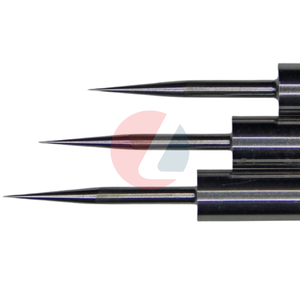
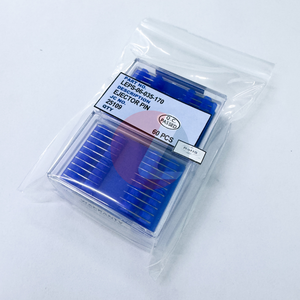
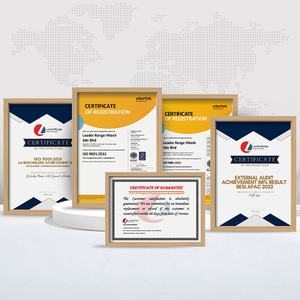



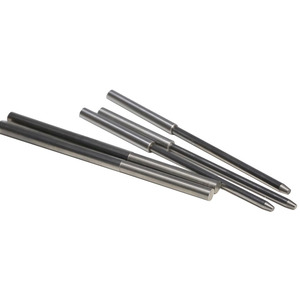








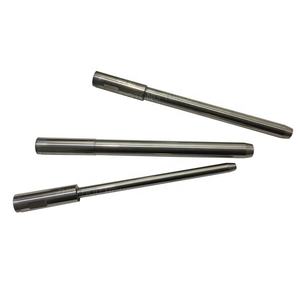
Tungsten carbide pilots come in various types. Each is suitable for different applications. Here are the most common types:
Tungsten Carbide Jigs
Jig Tungsten Carbide Pilots are used in machining operations. They are used in operations that require precision when carrying out drilling. These pilots are useful because they help maintain the drill bit's accuracy. They also assist in minimizing any deviation. Hence, the resulting holes are always uniform and of the correct shape and size. They can accommodate extended usage and are ideal for hard metal machining.
Tungsten Carbide Pilots for Pipes
Pipes usually channel fluids and gases. Tungsten carbide pilots aid in drilling through tough materials like steel alloys. They assist in ensuring accurate and clean holes in the piping.
Tungsten Carbide Pilots for Ball Valves
Tungsten carbide pilots are used in the manufacturing of ball valves. They are especially important for valves that will be exposed to high pressure and high temperature. The pilots guarantee that the drill bits read the right areas. They also minimize wear and tear, enhancing the valve's lifetime.
Tungsten Carbide Pilots for Shaft
Shaft pilots are used in rotating machinery. They help in providing the right amount of precision when making holes in shafts. They also minimize drill bit wear and ensure the bit stays accurate when drilling through hard materials. They improve the quality of the holes produced and are great for mechanical components.
Tungsten Carbide Pilots for Reamers
Reamers are used to enlarge existing holes for better accuracy. Tungsten carbide pilots improve the reaming process by providing better control and precision. They minimize the wear and tear that usually occurs on reaming tools. They are especially ideal for tough materials like hardened steels and alloys.
Tungsten pilots are one of the most durable tools on the market today. The durability of carbide pilot tools is mainly attributed to their wear resistance, thermal stability, and impact toughness.
Wear Resistance
Tungsten carbide is one of the hardest materials available today. It comes with an almost unmatched resistance to abrasion. Carbide pilots can hold up under constant friction. This is especially the case when they are used to drill into extremely hard materials. As wear is significantly reduced, there is also an increase in the lifespan of the tools.
Thermal Stability
Tungsten carbide has a high melting point. It allows the pilots to maintain their structure even under extreme heat. This heat usually comes from prolonged drilling operations. It means there is minimal deformation. This characteristic is very important in applications that require long drilling without breaks.
Impact Toughness
Carbide pilots can withstand shock loads. It is especially the case in situations where tools are subjected to rapid starts and stops. Even with this impact, there is minimal chipping or cracking of the pilots. This ensures that the pilots can maintain their accuracy over extended periods.
Chemical Resistance
Tungsten carbide is also resistant to chemicals and adverse reactions. These chemicals can be detrimental to the integrity of other materials. Tungsten carbide pilots can be exposed to abrasives, cutting fluids, and other chemicals and will remain pristine. This also adds to their longevity in such environments.
Consistent Performance
The durability of tungsten carbide pilots also means that they can provide consistent performance. With tungsten carbide pilots, the end products are always accurate and of the best quality. They are also more cost-effective in the long term for any business. This is because they reduce the frequency of tool changes and minimize downtime. Overall, they are a must for anyone looking to create consistent results.
The hardness and toughness of these Tungsten pilot shafts make them specialists for drilling precision holes in hard materials. Tungsten carbide pilots are essential in metalworking, oil and gas, mining, construction, and aviation.
Metalworking Industry
The metalworking industry uses tungsten carbide pilots widely in its operation. It uses them in reaming, drilling, and machining operations. Tungsten carbide pilots improve the accuracy of these operations. They also enhance the finish of the worked metal. The wear resistance of the pilots means they can be used on metals for an extended time. This makes them very cost-effective.
Oil and Gas Industry
Tungsten carbide pilots are very popular in the oil and gas industry. The industry uses them for drilling into tough rock formations. The pilots ensure that the drill bits are accurate when operating within these tough mediums. They also reduce wear and tear on the drill bits, leading to longer-lasting equipment. So, they are vital for efficient and effective drilling operations.
Mining Industry
In the mining industry, the pilots are used in the extraction of minerals from hard geological formations. Pilots improve the precision of drilling operations. As mentioned earlier, this leads to better control when creating boreholes. They also improve safety and the efficiency of mining operations and reduce the environmental impact by decreasing the energy required for drilling.
Construction Industry
The construction industry uses tungsten carbide pilots in various applications. They aid in drilling holes for anchor bolts, foundations, and structural supports. Their durability ensures that they can be used for long periods, even in tough materials like reinforced concrete. They guarantee accuracy. This reduces the need for rework or delays due to equipment failure.
Aerospace Industry
The aerospace industry also enjoys the benefits of tungsten carbide pilots. The industry uses them for precision machining of aircraft components. They ensure that there are no wear and tear on the pilots. The pilots also ensure the lightweight yet strong materials required for the aircraft components are met. There are longer production runs without needing to replace pilots. So, the carbide pilots contribute to both performance and cost savings, making them invaluable in this industry.
There are various factors that need to be considered when selecting tungsten carbide pilots. These factors revolve around what is necessary to ensure customer satisfaction. Here are the factors:
Material to be Drilled
This is the first consideration to make when selecting a tungsten carbide pilot. It is important to assess what material the pilot will be used for. If the client will be using the pilots for softer materials, then there is no need to harden carbide pilots for them. Soft carbide grades will work for these materials. If clients will drill harder materials, they should opt for the denser types of tungsten carbide.
Shank Size and Compatibility
The shank size of the pilot must be compatible with the equipment being used. Since this is usually a one-time purchase for clients, businesses should stock various shank sizes. They should ensure they have pilots that can be used with all types of equipment. Also, there are several specialized shank types, like welded, tapered, or collet. Businesses should consider what type of shank the client requires.
Coatings
Tungsten carbide pilots have various coatings that improve their functionality. These coatings improve their performance and longevity. Some popular coatings include titanium nitride, aluminum titanium nitride, and zirconium nitride. Each of these coatings helps improve the pilot's performance in different ways. For example, titanium nitride reduces friction and resistance. Conversely, aluminum titanium nitride offers enhanced thermal and oxidative stability. Businesses should consider which coating will be helpful for their clients.
Tolerance and Precision
It goes without saying that the main function of tungsten carbide pilots is to increase precision and tolerance. Therefore, when selecting the right one, businesses should consider the precision requirements of their clients. Ensure only tolerances that will meet the client’s requirements are selected. Manufacturing industries usually require more precision, while the construction industry is less rigid.
Impact and Shock Resistance
This is another important factor. Since pilots are usually subjected to harsh working environments, constant impact and shock are par for the course. Luckily, the pilots have been made to withstand this. However, businesses should ensure they only get pilots with adequate impact and shock resistance. Consider the specific environment and loading conditions the client will expose the pilots to.
A1: Tungsten carbide pilots have a working temperature of over 1000 degrees Celsius. The special makes of these pilots also work at temperatures as low as -30 and as high as 2000 degrees. Hence, they can be used in almost any environment. The manufacturing material of tungsten carbide pilots greatly helps them withstand extreme heat while maintaining their shape. It prevents them from bending. The pilots also do not suffer from thermal fatigue.
A2: There are benefits to selling both coated and uncoated tungsten carbide pilots to clients. Uncoated tungsten carbide pilots are more durable than other pilots. They also have greater wear resistance and a longer lifespan. They are also more cost-effective. Coated pilots offer enhanced performance. They improve lubricity and reduce friction. This increases lifespan. They are also beneficial in providing oxidation and corrosion resistance. Businesses should stock both coated and uncoated pilots so clients can choose which one suits their needs.
A3: Yes, the tungsten carbide pilots are chemically resistant. The pilots can withstand several chemical substances, such as acids and alkalis. Tungsten carbide itself is a stable material that does not react with many chemicals. Tungsten carbide tools can withstand chemical wear and have a longer lifetime. Even in harsh environments where chemical exposure is likely, the pilots can maintain their integrity.
A4: The percentage of cobalt added to tungsten carbide pilots enhances their strength. Cobalt is usually added to bind tungsten carbide grains. This is in powder metallurgy. The cobalt content creates a tougher and harder matrix that enhances the overall strength of the pilots. The synergy between cobalt and tungsten carbide gives these pilots exceptional durability and resistance to wear.